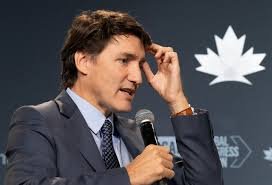The Conservative Party’s first attempt to topple Prime Minister Justin Trudeau’s government has failed, but more votes are on the horizon.
Conservative Leader Pierre Poilievre’s motion which stated the House had no confidence was defeated after the NDP and Bloc Quebcois joined the Liberals in voting against.
The vote marked a key test for the Liberals since the NDP ended its supply-and-confidence deal with the government.
Even though this vote was defeated, at least two more non-confidence motions are expected before Christmas with the first to be introduced on Thursday.
One motion includes comments from NDP Leader Jagmeet Singh and Bloc Quebecois Leader Yves-François Blanchet, criticizing the Liberal government and ending with “the House declare it has no confidence in the government.”
The second motion blames the Liberal government for “doubled housing costs, taxed food, punished work, unleashed crime” and calls it the “most centralizing government in Canadian history.”
If a non-confidence motion were to pass, the government would fall and a snap election would be triggered. The minority Liberals need the support of at least one other party in the House of Commons to survive such votes, or pass any legislation.Meanwhile, the Bloc Québécois said Tuesday it wants to give the Liberal minority government a chance for now, and that it stands ready to negotiate on important issues.
“We are in a situation where there will be other chances to bring down the government, so we’re saying let’s give the government a chance,” Bloc Québécois MP Alain Therrien said in French during a House of Commons debate Tuesday.
Despite the motion not expected to pass, the upcoming vote serves as a first test for Trudeau and his government since the collapse of their supply-and-confidence deal with the NDP.
It comes after a tumultuous summer for the Liberals, which saw two major byelection losses on top of the NDP withdrawing support from the supply-and-confidence agreement earlier this month.


